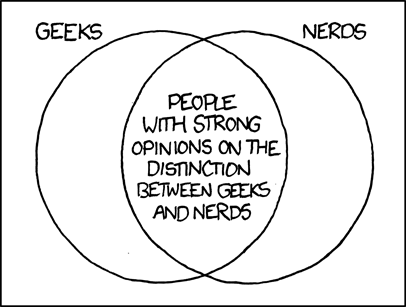Alexandre Enkerli PRO
Bilingual freelance ethnographer (English/French) currently working in User Research (UXR), workshop facilitation, collaborative writing, professional training, field observations, open-ended interviews…
September 22, 2014

Introducing Cyberculture
Silver, David. “Looking Backwards, Looking Forward; Cyberculture Studies 1990-2000.” Web Studies: Rewiring Media Studies for the Digital Age. Oxford University Press, 2000. http://rccs.usfca.edu/intro.asp
Turner, Fred. “Where the Counterculture Met the New Economy: The WELL and the Origins of Virtual Community.” Technology and Culture 46, no. 3 (2005): 485–512. doi:10.1353/tech.2005.0154. http://lar.me/2zb
Sociology in a Few Minutes (or Refresher)
Social Structure
Ritzer, G., and N. Jurgenson. (2010) “Production, Consumption, Prosumption: The Nature of Capitalism in the Age of the Digital ‘Prosumer’.” Journal of Consumer Culture 10 (1): 13–36. doi:10.1177/1469540509354673. http://joc.sagepub.com/content/10/1/13.short
Warschauer, M., and T. Matuchniak. (2010) “New Technology and Digital Worlds: Analyzing Evidence of Equity in Access, Use, and Outcomes.” Review of Research in Education 34(1): 179–225. doi:10.3102/0091732X09349791. http://rre.sagepub.com/content/34/1/179
By Alexandre Enkerli
Slides for the third class meeting in Alex Enkerli’s SOCI221 Sociology of Cyberspace course at Concordia University.
Bilingual freelance ethnographer (English/French) currently working in User Research (UXR), workshop facilitation, collaborative writing, professional training, field observations, open-ended interviews…